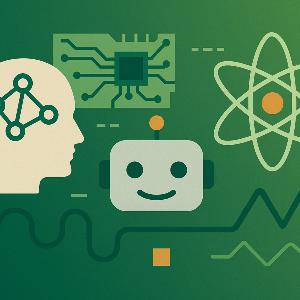AI in Physics (M.Sc. Physics – specialization certificate)
Bring cutting-edge AI and machine learning into real physics research — from particle physics to medical imaging and cosmology.

Bring cutting-edge AI and machine learning into real physics research — from particle physics to medical imaging and cosmology.

The Faculty of Physics at LMU Munich offers an Artificial Intelligence (AI) specialization within the four-semester Master of Science in Physics. As part of the AIM@LMU initiative, you’ll combine solid physics training with advanced machine learning and data-driven methods.
Outcome: You graduate with an LMU Master’s degree in Physics plus an official AI specialization certificate noted by the Examination Office.
Who is it for? Motivated M.Sc. Physics students who want to apply ML/AI to real physics problems across experiment, theory, and simulation.
These requirements are in addition to the compulsory components of the Master of Physics course. The Examination Office issues the certificate once all requirements are met.
Information on these regulations can be found here.
Below is the list of courses offered with a relevance for this certificate.
Lectures from Physics:
Seminars:
Lectures from Computer Science and Statistics:
(note: the main registration for CS courses happens from 1.9.-30.9.2025 on LSF now, late registration for courses without limitations is from 10.10.-30.10.2025)
Lectures from Physics:
Seminars:
Lectures from Computer Science and Statistics:
Labs:
Lectures from Physics:
Seminars:
Lectures from Computer Science and Statistics:
Lectures from Physics:
Seminars:
Lectures from Computer Science and Statistics:
Labs:
Lectures from Physics:
Seminars:
Lectures from Computer Science and Statistics:
Tip: Plan your CS/Stats registrations early — some courses have application windows or moodle sign-ups.
For questions about the specialization and course planning, please contact Prof. Dr. Jochen Weller:
E-mail: Prof. Dr. Jochen Weller.